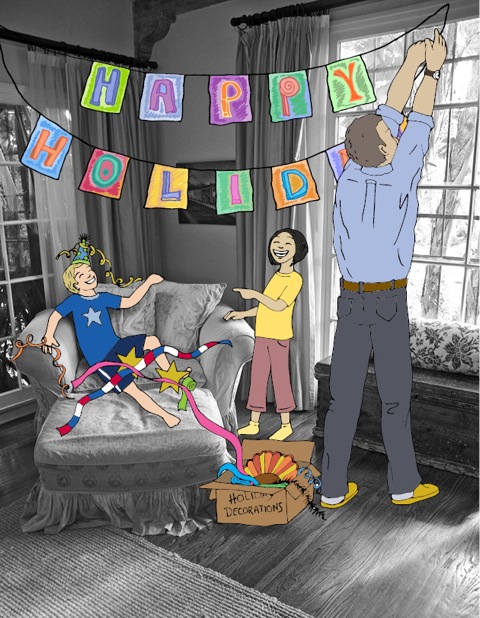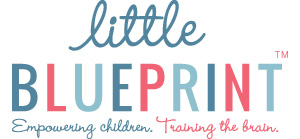When my oldest daughter was 3, she pointed to a mini-Christmas tree decoration at our local supermarket with excitement.
“Can we get a tree?” she asked.
“No, sweetie,” I explained, “we’re Jewish.”
After further pleading failed to sway me, she wailed, somewhere around the cereal aisle, “I HAAAATE being Jewish!”
I was mortified. I was upset. But most of all, at that moment, I wanted nothing more than for her to stop screaming those words in the supermarket. So, I grabbed a miniature tree and told her we were getting a Hanukkah Bush. On the drive home, I called my husband to warn him about what I was bringing home. I obviously had not thought through how to handle this incident and, as a result, committed one of many rookie mistakes of parenting: I simply reacted in the moment.
What I realized that day, years before my daughter would ask me to re-tell the story of the supermarket scene, is that I needed to think through this holiday thing more intentionally. What did we want to teach our children about our heritage and our beliefs? I’ve never been a fan of “accidental” parenting (or accidental anything, for that matter), yet, here I was with an opportunity to teach my daughter something special about the meaning of a holiday beyond a “Hanukkah Bush,” and I had not thought through the lesson plan. If we didn’t have a plan, then we were teaching by omission.
Regardless of each family’s beliefs, holidays provide a unique opportunity to teach our children about our individual and shared family values and traditions. (Sometimes I forget this in my self-inflicted panic over the eight nights of Hanukkah.) Going through the process of making a family holiday plan is a simple step towards making a celebration more meaningful.

As with any good plan, empowering others by making them a part of creating the plan is critical. Most importantly, children need to play an important role in creating a family holiday plan. By teaching children about holidays and brainstorming ideas for a plan together, the celebration evolves from accidental to intentional. It is not about making a logistical plan for who buys which presents for whom (although that can be useful, too). A family holiday plan is about intentionally making meaningful memories. It can be creative. It can be altruistic. It can be playful. It might include, among the endless possibilities:
- Creating a family holiday scrapbook or journal about the holidays with photos and stories that you add to every year
- Having children record family members’ stories of the holidays using a simple phone
- Baking together and giving the treats to teachers or others
- Giving out certificates of time as presents, e.g., going on a picnic, having a pillow fight, helping to make breakfast in bed for a family member
- Collecting unused household items to donate and delivering them together
- Writing special cards or creating artwork as gifts
- Playing holiday games, e.g. parents create a Christmas trivia game by asking questions about the history of Christmas, meaning of the holiday and traditions around the world (adjusting questions based on the age of children)
- Putting holiday questions in a bowl in the center of the table for a holiday dinner, e.g., What are you thankful for this year? (to be passed around and discussed)
- going caroling or visiting others who are in need of some holiday merriment
- Having a family night to decorate for the holiday
- Simply reading together by the fire with no electronics on hand
I used to underestimate how important family tradition is for my children during the holidays. Several years ago, I started writing poems for each night of Hanukkah with a theme for the night. Clues in the poem led to a hunt around the house to locate a present or a “certificate” for a special activity or event. (Now you know why I panic about the eight nights of Hanukkah.) I did not necessarily intend for this to become an annual tradition, but I quickly discovered that as memories of the gifts faded, the themes and clues did not. Our family plan has evolved over the years. The gifts are now smaller, but the themes and clues are more meaningful, and everyone partakes in the planning and the giving, especially the children.
Whether it is through themes and clues, a holiday story or a trip to visit others in need… there is no magic to the specifics of a family holiday plan. But you will find that making the plan is itself magical. You don’t need to bribe, cajole or trick your kids into focusing more on family traditions than gifts. If children take part in creating the holiday plan, this will happen intentionally, with the kids enthusiastically leading the way.
President Dwight D. Eisenhower once reflected that while plans can be worthless, “planning is everything.” And so too, bringing children in on the holiday planning changes everything.
Follow Katherine Eskovitz on Twitter: www.twitter.com/Blueprintlittle
